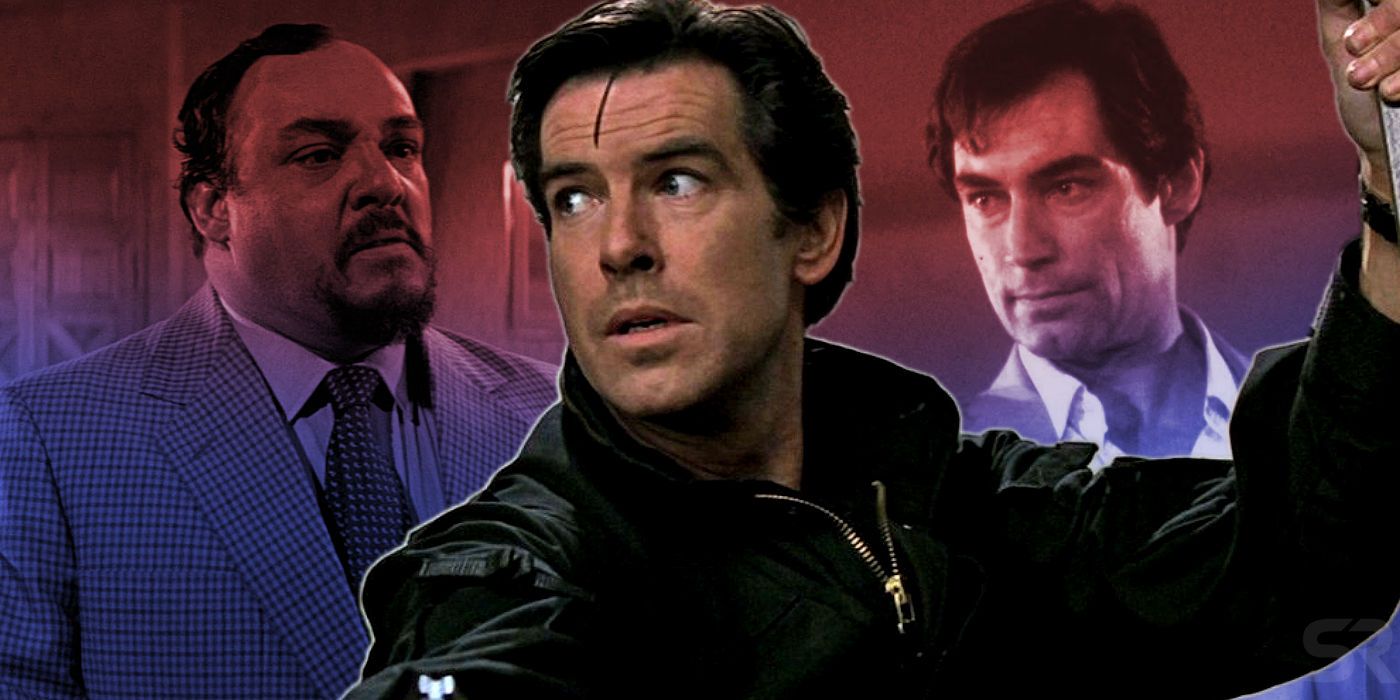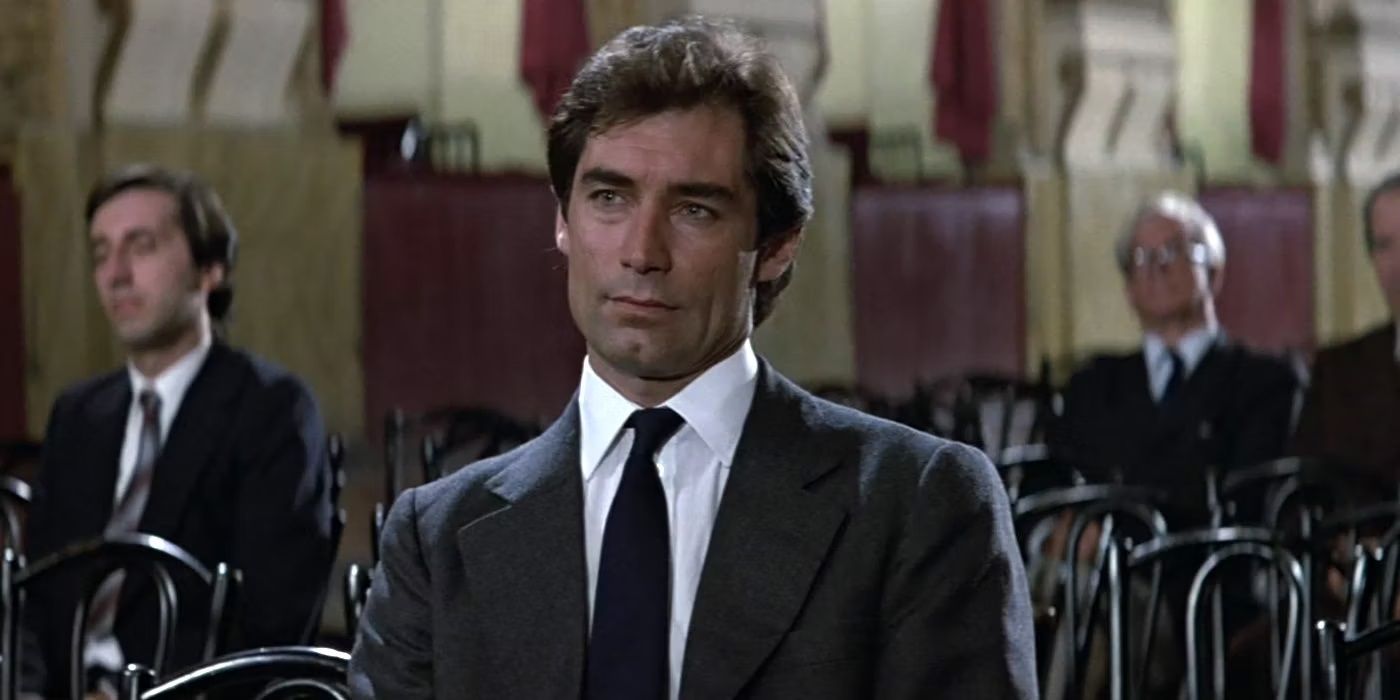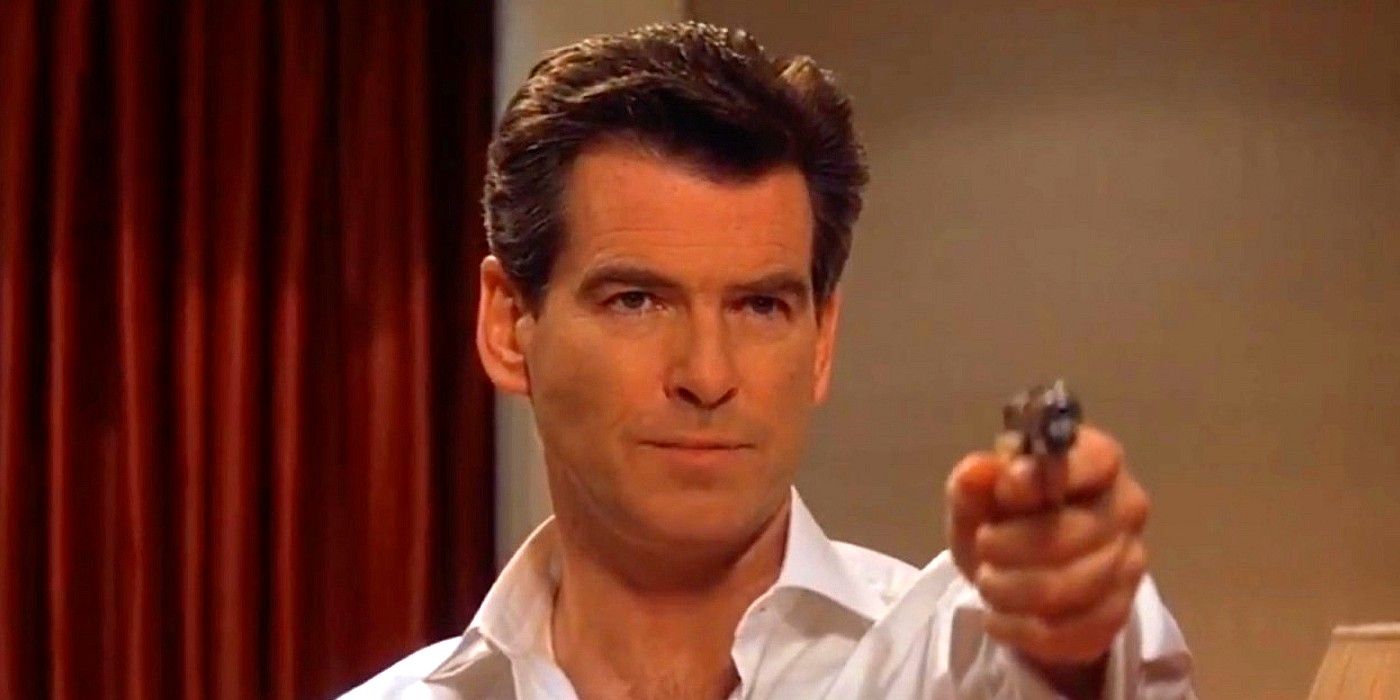While Pierce Brosnan was great as the fifth incarnation of James Bond, the Irish actor came surprisingly close to gaining the role a decade earlier before Timothy Dalton got the part instead, and this could have seriously derailed the series. For a famously English character, James Bond has been portrayed by relatively few English actors over the decades. The suave super-spy has been played by three English stars, but he has also been portrayed by a Scot, an Australian, an Irishman, and a Welshman.
While the race is currently on to find the next 007 actor (prompting all manner of debates over what race, gender, and even age the next James Bond should be), what some viewers of the series may not know is that one Bond actor almost gained the role a decade before his debut. Roger Moore played Bond in a 1964 skit for the short-lived sketch show Mainly Millicent almost a decade before he played the character for real in 1973’s Live and Let Die. Not only that, but another James Bond actor came even closer to gaining the role before his first official franchise appearance.
Before Pierce Brosnan went on to play James Bond in four movies between 1995 and 2002, the actor was a front-runner for the role in the mid-1980s. While producers were trying to decide between Brosnan and his primary James Bond competition, Timothy Dalton, Brosnan effectively took himself out of the running by moving to America to film a television show. This decision would prove to be a fateful one, as Dalton’s casting in Brosnan’s absence had big implications for the history of the James Bond series.
How Brosnan Lost Bond To Dalton
In the mid-80s, Bond front-runner Brosnan lost out on the part by committing to Remington Steele, a show that was canceled after a few episodes. However, while this is often made out to be a short-sighted maneuver on Brosnan’s part, the truth is a lot more unfortunate and was entirely out of the actor’s control. In reality, Brosnan was already contracted to play the lead role in NBC’s Remington Steele before he began screen testing for the role of James Bond. A lack of interest in Remington Steele led NBC to cancel the series, freeing future Die Another Day actor Brosnan to undertake the grueling Bond audition process. After a three-day screen test, James Bond producers were satisfied that Brosnan was the man for the role and offered him the part.
However, reports that Brosnan accepted the part then led to a resurgent interest in Remington Steele. This, in turn, prompted NBC to un-cancel Remington Steele, forcing Brosnan to film more episodes since NBC had a sixty-say option to extend his contract if the show was renewed. Brosnan filming another season of Remington Steele angered James Bond producers, who insisted that Bond’s actor couldn’t star in a contemporary TV series. This moved them to rescind the offer they made to Brosnan which, in turn, killed any audience interest in Remington Steele, and the show only aired five more episodes before Remington Steele was canceled again.
How Brosnan’s Bond Would Have Changed Dalton’s Movies
While he went through the wringer to get the part, Brosnan’s version of James Bond was one of the most light-hearted takes on the character in the entire 007 franchise. Thus, had he gained the role a decade earlier, Timothy Dalton’s infamously dark 007 (comfortably the most serious James Bond until Daniel Craig) would have been replaced by Brosnan’s more playful take on the character, the tone of the movies would have been lightened up, and Bond would likely have been unable to compete with the R-rated, darker action thrillers of the 80s as a result. While The Living Daylights and License to Kill are often seen as some of the most anomalously bleak and gritty 007 movies, there is a reason that Dalton’s films paved the way for Craig’s brutal Bond debut Casino Royale.
Like that intense, brooding James Bond outing, Dalton’s Bond movies arrived at a time when blockbusters took themselves seriously. Much like the early 00s were filled with grounded spy thrillers shot in handheld shaky cam, the late 80s were filled with Shane Black-influenced action movies that boasted inventively bloody kills, foul language, and a lot of adult content. Blockbuster hits like Lethal Weapon, Commando, and Die Hard brought a gorier brand of action to the multiplex, and Bond’s mid-80s adventures seemed hopelessly corny in comparison, an impression that wasn’t aided by Roger Moore’s outright comedic turns in outings like Octopussy. While these later, sillier Roger Moore Bond movies are now beloved cult classics, in the 80s, the franchise couldn’t help but look stale alongside brutally bloody, tough action movies. Dalton’s Bond was a reaction to this perception, whereas Brosnan’s self-consciously corny Bond would have only played into this idea and made the problem worse.
Why Brosnan’s Earlier Bond Could Have Doomed The Franchise
The circumstances that saw Brosnan lose out on the part of 007 were undeniably unfortunate, but the actor’s casting in The Living Daylights would have been just as disastrous as Dalton starring in the lighter, more over-the-top Goldeneye. Dalton’s darker Bond was an acquired taste, but the actor’s tonal transformation of 007 begat Brosnan’s meta, winking 90s version of James Bond, who was more broadly popular. This in turn led to Craig’s Bond—none of which would have happened without Dalton setting these events in motion. While Daniel Craig’s James Bond gets a lot of credit for deepening the pathos of the character and making the spy feel more believable than ever, this wouldn’t have been possible if the actor didn’t have both Dalton and Brosnan’s interpretations of the role to work with.
Similarly, if Brosnan had brought his charismatic, winking take on Bond to the franchise a decade earlier, 80s viewers who wanted self-serious action likely would not have been in on the joke. It wasn’t until the mid-90s that self-aware meta-comedy made its way into mainstream blockbuster action movies, and Brosnan’s eventual Bond debut proved perfectly timed to capitalize on this trend. Thus, as hard as it must have been for Pierce Brosnan to miss out on James Bond to Timothy Dalton at the time, this decision’s impact ended up saving the 007 franchise as a whole.

.jpg)


